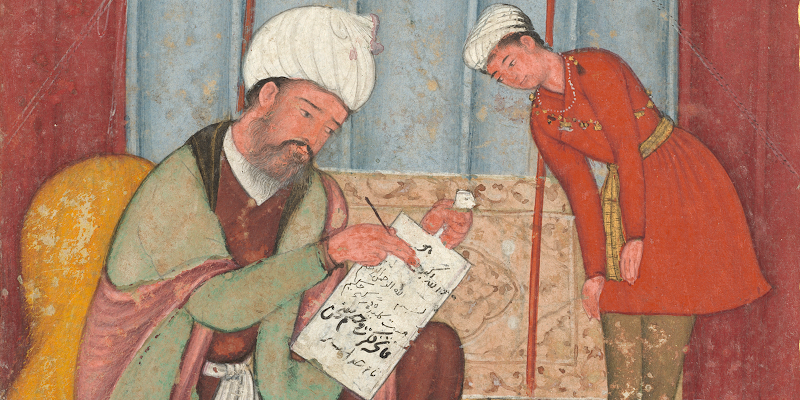Reconstructing Ottoman Armenian Life
with Vahé Tachjian
hosted by Chris Gratien and Nir Shafir
Download the episode
In the decades following the Armenian genocide, communities of the diaspora began to document the life of Ottoman Armenians in the towns and villages of Anatolia and publish their material in memory books aimed at preserving and transmitting Armenian histories for posterity. Largely composed in Armenian and languages of the diaspora, these books have circulated in small circles for decades as tiny fragments of a treasured but fading past. In recent years, digital outlets have created a new venue for piecing back together these fragments and sharing the history of Ottoman Armenians in a public forum. In this episode, we speak to historian Vahé Tachjian about the houshamadyan project, which since 2011 has served as a virtual space for the reconstruction and exploration of Ottoman Armenian life.
Stream via Soundcloud
 |
Vahé Tachjian earned his Ph.D. in History and Civilization at the Ecole des Hautes Etudes en Sciences Sociales (EHESS) in Paris. He has published widely on the history of the French Mandates in the Middle East and Armenians in the 19th and 20th centuries. He is also director of houshamadyan, a project to reconstruct Ottoman Armenian town and village life. (see academia.edu)
|
 |
Chris Gratien holds a Ph.D. from Georgetown University's Department of History. His research focuses on the social and environmental history of the Ottoman Empire and the modern Middle East. (see academia.edu) |
 |
Nir Shafir is a doctoral candidate at UCLA focusing on the history of knowledge and science in the early modern Middle East. He also runs the website HAZİNE, which profiles different archives, libraries, and museums that house sources on the Islamic world. (see academia.edu) |
Episode No. 204
Release Date: 21 October 2015
Location: Institute for Advanced Study, Princeton, NJ
Editing and production by Chris Gratien
Special thanks to Nora Lessersohn for Hovannes Cherishian's recording of "Kun yeghir balas"
Additional music from Maro Nalbandian
SAMPLE ARTICLES AND MATERIALS FROM HOUSHAMADYAN
Music Gallery
Aleppo, "Photo Gallery"
Harput, Political Life - The Ottoman Constitution, "Life in the region of Harput-Mamüretülaziz (1908-1915)," by Vahé Tachjian (trans. Hrant Gadarigian)
Marash, Voices, "Hovannes Cherishian," by Nora Lessersohn
Yozgat, "Games and Toys," by Vahé Tachjian (trans. Hrant Gadarigian)
Dersim, "Demography - Part 1," by George Aghjayan
Holy Mother of God - in Lake Tsovk (Gölcük) from Houshamadyan on Vimeo.
PHOTOS (hosted on houshamadyan.org)
SAMPLE ARTICLES AND MATERIALS FROM HOUSHAMADYAN
Music Gallery
Aleppo, "Photo Gallery"
Harput, Political Life - The Ottoman Constitution, "Life in the region of Harput-Mamüretülaziz (1908-1915)," by Vahé Tachjian (trans. Hrant Gadarigian)
Marash, Voices, "Hovannes Cherishian," by Nora Lessersohn
Yozgat, "Games and Toys," by Vahé Tachjian (trans. Hrant Gadarigian)
Dersim, "Demography - Part 1," by George Aghjayan
PHOTOS (hosted on houshamadyan.org)
| Kharpert/Harput. The Community School graduates of 1909/1910 with the school’s director Tlgadintsi (seated, centre) (Source: Nubarian Library collection) |
| Van: Gakavian family (Source: Christine Gardon collection) |
| Bursa: The Armenian quarter and the entrance of the Armenian cemetery (Source: Michel Paboudjian collection, Paris) |
| Adana, ca 1900: on the left – Bedros Yeghiayian, right – Levon Yeghiayian (Bedros’ cousin). They are photographed with their imported German ‘Hercules’ bicycles (Source: Bedo Eghiayan collection) |
| Diyarbekir: the Voskerichians' silk factory (Source: Dzovig Torigian collection) |
| Mardin (Source: Michel Paboudjian collection, Paris) |
| A scene from Izmit (Michel Paboudjian Collection) |










Comments
Post a Comment
Due to an overwhelming amount of spam, we no longer read comments submitted to the blog.